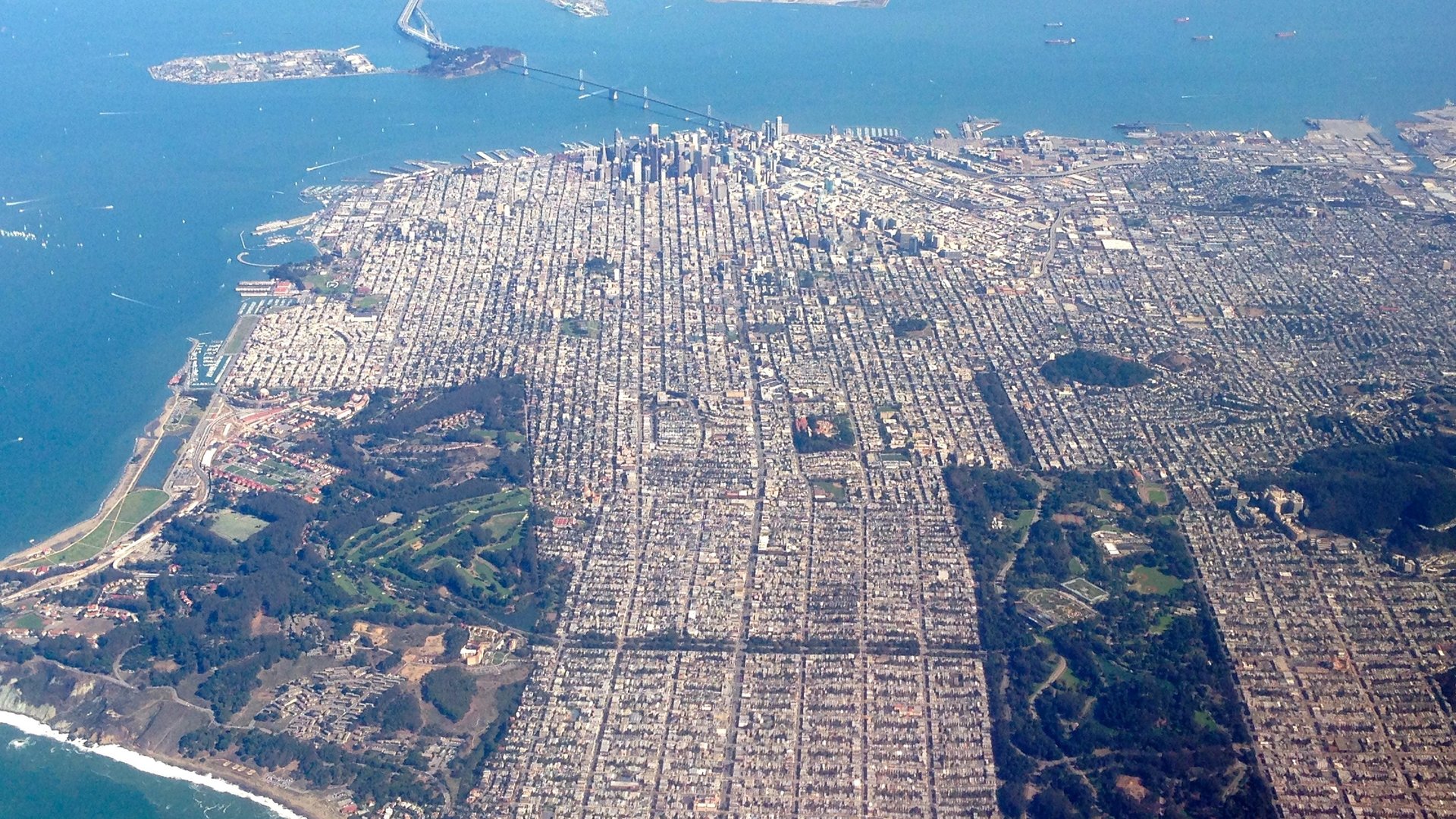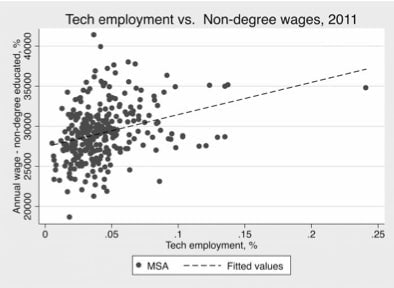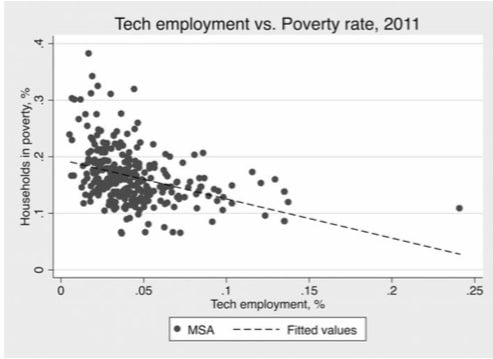The tech economy raises wages for everyone but the truly poor
There are two narratives about the technology economy. The first says technology companies drive inequality and burden the poor with a crushing increase in the cost of living. The second portrays them as an engine of prosperity in America’s cities that lifts all boats. Neil Lee, a researcher at the London School of Economics & Political Science, wanted to know what the data said.


There are two narratives about the technology economy. The first says technology companies drive inequality and burden the poor with a crushing increase in the cost of living. The second portrays them as an engine of prosperity in America’s cities that lifts all boats. Neil Lee, a researcher at the London School of Economics & Political Science, wanted to know what the data said.
Lee and his co-author published their answer (paywall) this week in the Annals of the American Association of Geographers after analyzing US Census data across 295 metropolitan areas from 2005 to 2011.
The study show the rise of technology employment in cities clearly benefits many in the knowledge economy and local businesses. In cities with a higher share of technology jobs, salaries increased for middle and upper-income workers (those with incomes at 80% or above the current poverty line), including among those without college degrees. Earlier research has shown that tech workers earn a 17% premium over other sectors, and high-tech jobs generate almost five new jobs in a local economy.

But there aren’t enough jobs to reach those in deep poverty. Poverty rates in cities do decline as tech employment rises, but once researchers control for local factors (such as metro size, manufacturing, race, gender, immigrants of the urban populations), the benefits from tech disappeared for the very poor. “There is no firm evidence that high-technology industries reduce poverty,” the study concluded. Previous research by Richard Florida at New York University who is an editor at The Atlantic has also shown that leading tech hubs are among the nation’s most unequal places.

This is a double whammy for those who live in tech hubs. As well-paid workers flood into cities attracted by jobs and salaries, housing prices and other living expenses often rise, wiping out the benefits of higher wages for low-skilled workers. That’s an apt description of the last three years in San Francisco.
Still, it’s simplistic to pin this on the technology industry alone, argues Florida. ”Poverty is a result of forces beyond the high-tech industry, and it is a mistake to scapegoat the tech industry for every issue related to economic inequality,” he writes. “Cities and metros can clearly not afford to think of tech-based growth as a perfect way to lift all boats and allow wealth to trickle down to lower-income residents.”
The image above was taken by Andrew Nash and shared under a Creative Commons license on Flickr.